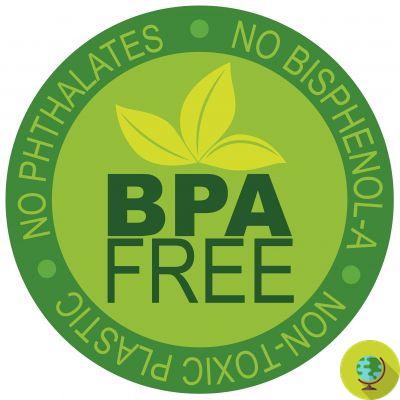
EFSA absolves bisphenol A from possible health risks for consumers. The European Food Safety Authority itself took care of concluding a new assessment on consumer exposure to BPA.
Don't store avocado like this: it's dangerous
EFSA absolves bisphenol A from possible risks to the health of consumers. The European Food Safety Authority itself took care of concluding one new evaluation on consumer exposure to BPA.
There would be no risk for any age group, including fetuses, infants and adolescents, at current exposure levels. EFSA in its release on bisphenol A refers to all types of exposure, both through the diet and with regard to a set of various sources, which in addition to nutrition can include dust, cosmetics and thermal paper.
THEexposure through diet or a combination of various sources (diet, powder, cosmetics and thermal paper) is clearly below the safety level (the "tolerable daily dose" or TDI), EFSA specified.
The new data and refined methodologies have led EFSA's experts to considerably reduce the safety level of BPA from 50 micrograms per kilogram of body weight per day (µg / kg of bw / day) to 4 µg / kg of bw / day .
EFSA announces that in the calculation of the TDI have been quantified and scientific uncertainties taken into account concerning the potential effects of BPA on the mammary gland and the reproductive, metabolic, neurobehavioral and immune systems. In addition, the TDI has been provisionally calculated, pending the outcome of a long-term rat study that will help reduce these uncertainties.
EFSA carried out this risk assessment as BPA is a very common chemical compound used in the production of materials that come into contact with food, such as reusable dish plastic and can liners. BPA is also used in the thermal paper of receipts and tax receipts.
Precisely on the basis of the possible health risks related to bisphenol A, in recent times France has put forward an action plan to eliminate BPA from the production processes of companies that produce plastic and paper for receipts. According to the new EFSA assessments, will France change its mind? Without counting the ban on the production of baby bottles containing bisphenol A in force in Europe since 2011: will it remain as it is and which one?
In any case, EFSA admits that BPA residues can migrate into food and beverages and be ingested by consumers and that BPA from other sources, such as thermal paper from receipts and receipts, cosmetics and dust, it can be absorbed through the skin and by inhalation.
Do we really no longer have to worry about exposure to this substance? Dr. Trine Husøy, chair of the working group on BPA, said: "Our group has decided to re-evaluate the safety of BPA in light of the massive volume of new research studies that have appeared in recent years."
After evaluating a relevant body of new scientific information on the toxic effects of BPA, EFSA concluded that high doses of BPA are likely (hundreds of times higher than the DGT) cause harmful effects on the kidneys and liver and, in animals, also on the mammary gland.
At the moment, however, the effects on the reproductive, nervous, immune, metabolic and cardiovascular systems, in addition to the carcinogenic potential, they are not considered probable, but the available evidence does not allow to exclude them. Therefore, these effects fall within the areas of uncertainty regarding the hazards associated with BPA and therefore, in the words of EFSA, they were taken into account in the assessment.
Can consumers really consider themselves safe? If you are not sure:
- READ: BPA: 10 Ways To Lower Whole Family Exposure To Bisphenol A
– Check the summary of EFSA's scientific opinion and FAQ of EFSA on BPA to better understand the new risk assessment.
Marta Albè
Photo source: alve.com
Read also:Bisphenol S and Bisphenol F: a new study warns against bisphenol A substitutes Bisphenol A: really impossible to remove BPA from plastics and receipts? Bisphenol A bottle outlawed as of March 2011. The directive has been published in the Official Journal


























